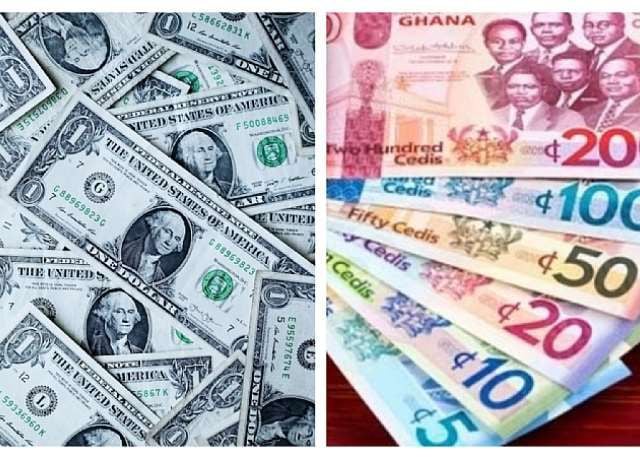The Ghanaian cedi experienced a noticeable depreciation against the US dollar on Wednesday, September 17, 2025, reflecting a continuing trend of volatility in the currency market. Data compiled from Cedirates.com, a trusted source for currency and fuel price information in Ghana, reveals a disparity between the interbank market rates and those offered by forex bureaus. On the interbank market, where financial institutions trade currencies among themselves, the cedi traded at an average buying rate of GHS12.19 and a selling rate of GHS12.21 against the dollar. However, at forex bureaus, which cater to individuals and smaller businesses, the rates were significantly higher, reaching GHS13.20 for buying and GHS13.50 for selling. This difference highlights the premium individuals often pay for foreign currency compared to institutional actors. The overall average rates across both markets settled at GHS12.18 for buying and GHS12.73 for selling.
The depreciation of the cedi against the US dollar was mirrored in its performance against other major international currencies like the British pound and the euro. For the British pound, the average forex bureau rates were GHS16.44 for buying and GHS17.27 for selling, while the Bank of Ghana’s interbank rate stood at GHS16.65. This again illustrates the higher rates prevalent in the retail forex market. Similarly, the euro traded at GHS14.28 for buying and GHS15.00 for selling at forex bureaus, compared to the interbank rate of GHS14.45. These fluctuations impact the cost of imported goods and services, which can contribute to inflationary pressures within the Ghanaian economy. The difference between the interbank and forex bureau rates also creates opportunities for arbitrage but underscores the challenges faced by individuals seeking access to foreign currencies.
The remittance landscape offers a slightly more competitive exchange rate for Ghanaians receiving funds from abroad. Money transfer operators LemFi and Afriex provided identical rates of GHS12.25 for dollar remittances originating from the US or UK. For British pound remittances, LemFi offered a rate of GHS16.60, while Afriex offered a slightly higher rate of GHS16.63. Regarding euro remittances, Afriex quoted GHS14.44, and LemFi offered a slightly lower rate of GHS14.37. These rates, while still higher than the interbank rates, offer a more favorable exchange for those receiving money from overseas compared to purchasing currency directly from forex bureaus. The competitive landscape among these remittance providers contributes to a more advantageous pricing structure for consumers.
The rates for digital subscriptions further highlight the diverse landscape of currency exchange in Ghana. For international digital services like Netflix, Spotify, and Apple Music, payments made via Visa and Mastercard were processed at an exchange rate of GHS13.16. This rate falls within the range observed at forex bureaus but is significantly higher than the interbank market rate. This pricing structure reflects the cost of processing international transactions and the fees associated with these payment platforms. It underscores the impact of exchange rate fluctuations on the affordability of digital services for Ghanaian consumers.
The variations in exchange rates across different platforms and transaction types demonstrate the complexity of the Ghanaian foreign exchange market. The differences between interbank rates, forex bureau rates, remittance operator rates, and rates applied to digital subscriptions highlight the diverse factors influencing currency pricing. These factors include market demand, transaction fees, operational costs, and the specific exchange rate policies adopted by different service providers. Understanding these nuances is crucial for individuals and businesses navigating the foreign exchange market in Ghana.
The volatility of the cedi against major currencies like the US dollar, British pound, and euro has significant implications for the Ghanaian economy. Depreciation can lead to increased import costs, impacting the price of essential goods and services. This can contribute to inflation and erode purchasing power, particularly for vulnerable populations. Fluctuations in exchange rates also affect the cost of servicing external debt, potentially impacting the country’s fiscal stability. The government and the central bank often implement various measures to manage exchange rate volatility and mitigate its adverse effects on the economy. These measures can include monetary policy adjustments, interventions in the foreign exchange market, and efforts to promote export diversification and enhance foreign currency reserves. The prevailing exchange rate dynamics underscore the importance of continuous monitoring and strategic interventions to maintain stability in the Ghanaian economy.














